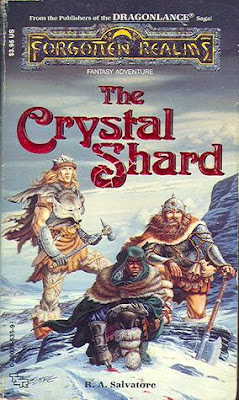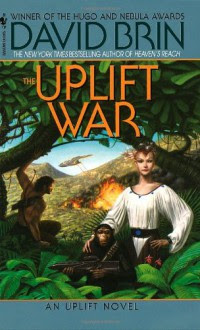 |
| 4 out of 5 stars |
Isaac Vainio is a
Libriomancer, a member of the secret organization founded five centuries
ago by Johannes Gutenberg. Libriomancers are gifted with the ability to
magically reach into books and draw forth objects. When Isaac is
attacked by vampires that leaked from the pages of books into our world,
he barely manages to escape. To his horror he discovers that vampires
have been attacking other magic-users as well, and Gutenberg has been
kidnapped.
With the help of a motorcycle-riding dryad who packs a
pair of oak cudgels, Isaac finds himself hunting the unknown dark power
that has been manipulating humans and vampires alike. And his search
will uncover dangerous secrets about Libriomancy, Gutenberg, and the
history of magic. . . .
How could I resist Isaac Vainio, the main character of
Libriomancer?
Not only does he work in a library, but he is a cataloguer like myself,
although my job has not yet required me to fight off vampires nor take
on the care and feeding of a fire-spider. Isaac has been banished to
“just” library work, after having a bit of a “magical incident” and is
trying to earn his way back into the action.
Nor is Isaac the
only character to enjoy. There are some great secondary characters who
also have interesting back stories. Not to mention the Porters, the
organization of Libriomancers—those folk who can use works of fiction to
produce swords, truth serums, guns, gems, etc. in the real world. Plus
there are various “strains” of vampires, depending on which era’s
fiction they are pulled from (“Sparklers” being the Twilight series’
offering in this regard). Arming himself with books, Isaac attempts to
go right some wrongs—well-read science fiction readers will get a smile
out of many of his choices.
This is very much a first offering in
the series—there is an awful lot of mutual explaining done between
Isaac and the other characters to help the reader into the pictures.
With any luck, there will be less info-dumping in the next volume and we
can just get on with the adventures!
May I also say that I am a
recovering arachnophobic, but Smudge the fire spider didn’t trigger any
strong reactions for me. Having said that, I don’t react to such things
nearly as strongly as I used to (the giant spiders in
The Hobbit and Shelob in
The Lord of the Rings caused me some nightmares when I was a young person!)
The whole idea of “agent banished to desk work for bad behaviour” reminded me strongly of Mick Herron’s
Slough House
series, in which failed British secret service agents are sent to do
the most boring & repetitive intelligence work to encourage them to
quit and move on.
Read to fulfill the
Creepy Crawlies square of my
2016 Halloween Book Bingo card.















